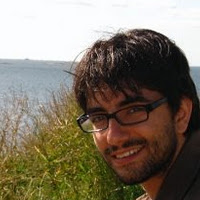The puzzle of Danish: what a (not so) exotic language can teach us about the amazing flexibility of human cognition
Talk by Riccardo Fusaroli, Cognitive Science
Info about event
Time
Location
Online on zoom meeting ID 563 610 6271

Abstract
Human languages vary in surprising ways, and much research has shown how our ways of looking at the world (conceptual systems) vary accordingly. However, little is known as to how linguistic differences impact our very basic cognitive processes: the way we process, integrate and produce information. This is the gap that the Puzzle of Danish (a FKK funded project) is tackling.
The Danish language presents peculiar challenges to its learners (both native and second-language ones). Danish has many vowels and it tends to delete or turn consonants into vowel-like sounds making it hard to identify syllables and words. While Danish children have been shown to struggle compared with children learning Norwegian Bokmål, a related language without these properties; adults do not. How do they manage? We therefore compared Danish and Norwegian native speakers in a set of experimental paradigms (from categorical perception, to sentence disambiguation, to joint problem solving). The findings indicate that Danish native speakers make a more strategic use of contextual information, and construct more redundant conversational niches to overcome the challenges posed by Danish. Crucially, by manipulating the experimental contexts we manage to get Norwegians to behave a bit more like Danes, supporting the idea that these are cognitive strategies employed to deal with challenging speech.
About the speaker
Riccardo Fusaroli, Associate Professor
Cognitive Science
School of Culture and Communication
